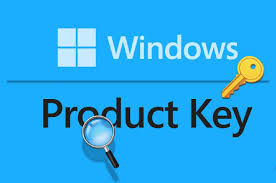Budgeting is a crucial aspect of managing a small business, but it can be challenging for many entrepreneurs. With limited resources and a need to closely monitor every expense, small business owners must adopt practical budgeting strategies to ensure financial stability and success. Jared Kamrass offers valuable insights on how to budget easily as a small business owner:
Determine Business Operating Expenses: The first step in budgeting is identifying and understanding your business operating expenses. These are the essential costs required to run and operate your business, such as rent, utilities, equipment, supplies, and other regular expenses. Take the time to compile a comprehensive list of all these expenses to ensure that no item is overlooked.
Estimate Income and Revenue: Forecasting your business’s income and revenue is vital for budgeting. Consider both current financial data and future projections to estimate your monthly or quarterly income. Having a clear understanding of your expected revenue will help you allocate funds appropriately and plan for any unforeseen expenses.
Create an Actual and Projected Budget: An actual budget is the final version based on your projected budget. Initially, focus on creating a projected budget using financial planning software or tools. This will help you gain familiarity with the budgeting process and make necessary adjustments as you progress. As your business grows, you can develop more detailed and accurate actual budgets based on real financial data.
Be Realistic: It’s essential to be realistic when budgeting for your small business. Avoid overestimating revenue or underestimating expenses, as this can lead to financial strain and hinder business growth. Base your budget on achievable goals and conservative projections, but don’t be afraid to set ambitious targets to motivate growth.
Track and Monitor Expenses: Once your budget is in place, tracking and monitoring expenses is crucial. Keep detailed records of all financial transactions, including income and expenses. Regularly review your budget to ensure you are staying on track and making informed financial decisions.
Set Aside Emergency Funds: Unexpected expenses are inevitable in business. To avoid financial crises, set aside emergency funds in your budget. Having a contingency fund will provide a safety net during challenging times and help you avoid taking on unnecessary debt.
Seek Professional Advice: If budgeting proves to be overwhelming, consider seeking professional advice. Consulting with a financial advisor or accountant who specializes in small businesses can provide valuable insights and help you create a robust and realistic budget.
Review and Revise: As your business evolves, your budget should adapt accordingly. Review your budget regularly and make necessary revisions to accommodate changes in revenue, expenses, or business goals. Flexibility is key to maintaining financial stability.
In conclusion, budgeting is a fundamental aspect of small business management. By understanding your operating expenses, estimating income and revenue, creating an actual and projected budget, being realistic, and tracking expenses diligently, you can effectively manage your small business’s finances and work towards long-term success click here Jared Kamrass.


